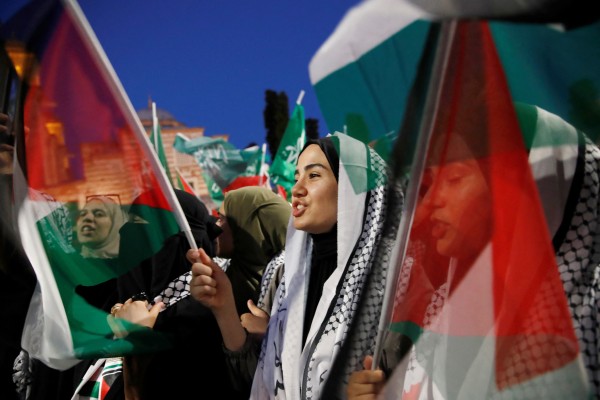WASHINGTON: The White House on Wednesday voiced concern about the increased risk of an escalation into a broader Middle East war after the assassination of Hamas leader Ismail Haniyeh in Iran drew threats of retaliation against Israel.
Speaking to reporters at a daily briefing, White House national security spokesperson John Kirby said, however, that Washington did not see an all-out conflict in the region as imminent or inevitable and that it was working to prevent that from happening.
He said the U.S. still believed there was a “viable” process to reach a ceasefire deal to end more than nine months of fighting between Israel and Hamas in the Gaza Strip, despite
concerns that effort had been dealt a serious blow.
The Palestinian Islamist militant group Hamas and Iran’s Revolutionary Guards confirmed the death of Haniyeh, who had participated in internationally-brokered indirect talks on
reaching a ceasefire in the Palestinian enclave. The Guards said it took place hours after he attended a swearing-in ceremony for Iran’s new president.
People in Iran are celebrating the assassination of Ismail Haniyeh by distributing sweets.
This is the true sentiment of the Iranian people. They hate terrorists and their supporters. pic.twitter.com/NjHiXwKzDC— ثنا ابراهیمی | Sana Ebrahimi (@__Injaneb96) July 31, 2024
Prime Minister Benjamin Netanyahu’s government made no mention of Haniyeh’s killing in a televised statement on Wednesday evening but said Israel had delivered crushing blows
to Iran’s proxies of late, including Hamas and Hezbollah, and would respond forcefully to any attack.
The assassination occurred less than 24 hours after Israel claimed to have killed Hezbollah’s most senior military commander in the Lebanese capital Beirut in retaliation for a deadly rocket strike in the Israeli-occupied Golan Heights.
ESCALATION FEARS
“We don’t want to see an escalation,” Kirby told reporters. “Those risks go up and down every day. They are certainly up right now. They don’t make the task of de-escalation, deterrence and dissuasion – which is the goal – any less complicated.”
Kirby referred to comments by Iran’s Ayatollah Ali Khamenei, Iran’s Supreme Leader who said Israel had provided the grounds for “harsh punishment for itself” and it was Tehran’s duty to avenge Haniyeh’s death.
Iranian forces had already made strikes directly on Israel earlier in the Gaza war, which was triggered by a Hamas-led cross-border attack on Israel on October 7.
Kirby declined to say whether the U.S. was urging restraint by Israel, except to say: “We have been working hard to keep this war from escalating.”
While the latest events appear to set back any prospects for an imminent ceasefire agreement in Gaza, Kirby said: “We haven’t seen any indications … that the process has been completely torpedoed.”
“We still believe the deal on the table is worth pursuing,” he added.
U.S. Secretary of State Antony Blinken, at an event in Singapore, sidestepped a question on Haniyeh’s killing, saying a ceasefire deal in Gaza was key to avoiding wider regional
conflict. He told Channel News Asia that the U.S. had neither been aware of nor involved in the killing.
Blinken spoke by phone to Jordanian and Qatari leaders, and the State Department said they discussed regional tensions and efforts to reach a Gaza ceasefire.
The U.S. also urged its citizens to not travel to Lebanon, citing rising tensions between Israel and the Lebanon-based Hezbollah group.
(REUTERS)
In a career spanning three decades and counting, Ramananda (Ram to his friends) has been the foreign editor of The Telegraph, Outlook Magazine and the New Indian Express. He helped set up rediff.com’s editorial operations in San Jose and New York, helmed sify.com, and was the founder editor of India.com.
His work has featured in national and international publications like the Al Jazeera Centre for Studies, Global Times and Ashahi Shimbun. But his one constant over all these years, he says, has been the attempt to understand rising India’s place in the world.
He can rustle up a mean salad, his oil-less pepper chicken is to die for, and all it takes is some beer and rhythm and blues to rock his soul.
Talk to him about foreign and strategic affairs, media, South Asia, China, and of course India.





